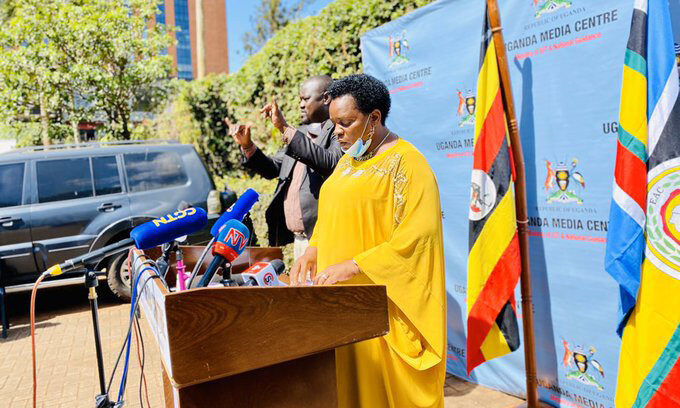
Honorable Peace Mutuuzo addressing the media on Thursday about the International Day of the Family slated for 15th May, 2020. COURTESY PHOTO.
The State Minister for Gender and Culture Honorable Peace Regis Mutuuzo told media reporters in Kampala on Thursday that government will commemorate the International Day of Families much as it comes at a time of one of the most challenging global health and social crises.
Observed annually on May 15, International Day of Families highlights the importance of families as basic units of society.
According to the government, the theme for this year is “A Harmonious Family: A Key to Sustainable Peace and Development”.
“This year is unique because the world over is commemorating the Day under lockdown due the novel Covid-19 pandemic,” Hon Mutuuzo said.
“To appreciate that the family has stayed together during this challenging Covid-19 period despite all the stress, government agreed to commemorate the day,” she said.
Speaking on the importance of this day, Hon Mutuuzo said: “The theme requires us to understand the role of a stable and harmonious family and how it contributes to peace and sustainable development in the country. It is well known that strong families create strong societies and nations at large.”
Hon Mutuuzo added that in observing this day, the government of Uganda stands in solidarity with the families that have been affected differently by the pandemic.
“The family is the first place where we receive our first education and where socialization of values and other traits are learned. Although we have some families that are harmonious and peaceful, this is not the case for most families,” Hon Mutuuzo said.
Uganda’s 2016 Demographic and Health Survey found that the average household size in the country is 4.5 members. Thirty-one percent of households are headed by women. 77% of Uganda’s population is under 25 years of age.
“Before the pandemic, a number of families had virtually been lost in modernization and individualization. This is worsened by a number of crises ranging from natural to man-made crises,” Hon Mutuuzo said.

